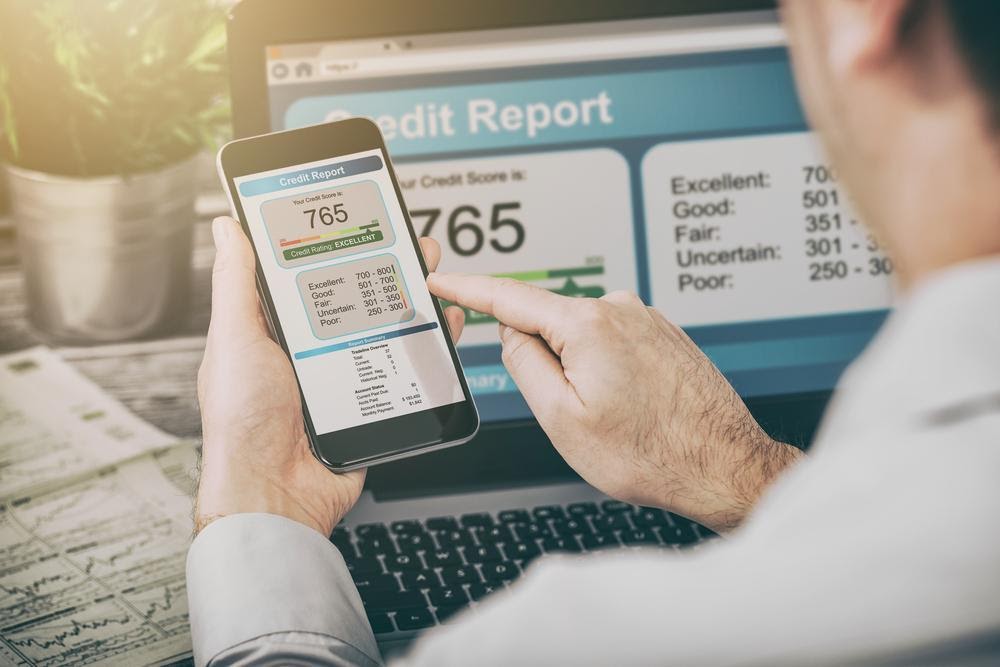Credit might be an intimidating concept to think about, but unfortunately, it’s the fuel on which America runs (yep, it’s not Dunkin, it’s credit). So, if you want to keep your finances in check and boost your freedom to take loans and make big purchases, you’ll need to engage in the tumultuous world of credit.
If you’re worried, don’t be. With this helpful guide, you’ll be building, managing, and boosting your credit in no time!
Credit Basics
To keep your head from spinning (and your finances from spiraling), you’ll want to know the ins and outs of credit—while credit cards get you a lot in this world, they’re not free money.
Here are some basic frequently asked questions to get you started
- What is credit?
Credit is simply the value of borrowed money that you promise to pay later to the lender. In the case of credit cards, this lender is your bank or credit union.
Nope. Too much debt is bad (but manageable—more on that later) but momentary credit card debt that you pay off frequently is just fine. In fact, acquiring debt and paying it off improves your credit score and paves the way for bigger purchases in the future (like a car or a new house!).
Not too many, but definitely not zero. Kickstart your credit score by applying for one or two cards, and then ramp up from there depending on your needs. Look for a card with a low interest rate, reduced fees, and possibly cash-back rewards. If you’re a student, you can even find special deals.
Get Your Credit Score Up
When it comes to credit, increasing your score isn’t as simple as playing an arcade game (but luckily, it’s also not a scam… it’s like those games want us to lose!). Achieving and maintaining a high credit score is all about consistency, responsibility, and awareness—you will never avoid debt if you have no idea how much you’re spending.
Banks, lenders, and other financial agencies view credit scores mostly based on the FICO ranking system, which goes like this:
- 800 – 850 – Exceptional
- 740 – 799 – Very Good
- 670 – 739 – Good
- 580 – 669 – Fair
- 300 – 579 – Very poor
But how do you make your score budge?
Raising your credit score takes time and patience, but it is definitely possible (and should be one of your financial goals). While the various credit scoring systems weigh these factors differently, the main influencers of your score are as follows:
- Payment history
- Credit history (age, type, and number of credit accounts)
- Number of recent credit accounts opened
- Number of times you’ve made hard inquiries for your credit report
- Total debt
- Documented bankruptcies (or other records)
While you can’t control your credit history outside of getting at least one credit card as soon as you can, you can control how often you pay your debt, how much debt you accumulate, and limit the number of accounts you open.
Roll up a Debt Snowball
The fundamental principle of a debt snowball is simple: build debt-busting momentum by paying your debts from smallest to largest.
But what does that mean?
To pay your debt off more quickly and effectively—without getting bogged down by mountainous interest rates—follow this procedure:
- Rank your debts based on the interest rate, from lowest to highest
- Pay the minimum amounts on all of them (except for the smallest one)
- Use most of your disposable savings income to pay off the smallest debt first
- Once that one is paid off, move onto the next one—repeat until you’re all good
Just like you build a huge snowball by first creating a small ball and gaining momentum as you roll, you’ll start slowly paying off your debts until you’ve created a boulder of financial redemption.
Practice Credit Safety
So, you’ve done a great job at building credit, getting out of debt, and raising your score—now it’s all about maintaining it! To keep your score nice and high (and to keep your bank account in check).
Avoid web or mobile scams like phishing schemes and hacks.
Don’t give away your SSN, personal information, family details, account information, or credit card numbers to any source, even if it seems reliable.
Here are some ways to check if an inquiry is legit, or legitimately fishy:
- If you received an alarming text or email about immediate action needed for your credit account—your bank will never text you, so report that sender.
- Check the email address or phone number; if it isn’t your bank’s official email, or if it shares your area code, take a second (or third) look before proceeding.
- If the source says it’ll send you a confirmation code, but one doesn’t arrive.
If this ever happens, remember to take a deep breath and recognize that this happens to plenty of normal people every day. You will make it through and, if you act quickly, your credit score should be just fine.
Use Credit, Don’t Let Credit Use You
Credit is a tricky tool that, when wielded correctly, can open a whole new world of financial opportunity for you. At the same time, it can backfire tremendously if you’re inattentive, irresponsible, or unaware. But you’ve got that covered after reading this, right? Don’t be afraid of using credit to your advantage. Just make sure you’re managing it, so it doesn’t rule your life!


















Comments